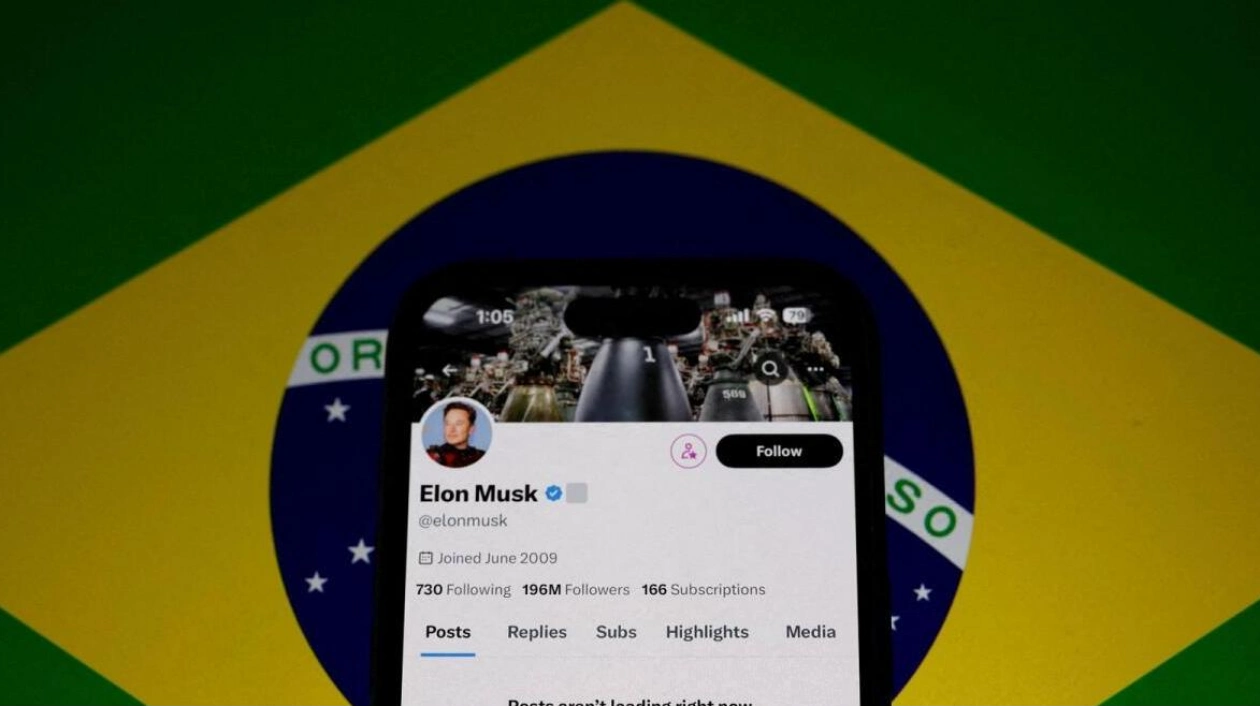Elon Musk's troubles extend beyond Brazil, as he now faces potential EU sanctions in the coming months for allegedly violating new content rules. Access to X has been suspended in Brazil, South America's largest country, since Saturday following a protracted legal battle over disinformation, which culminated in a judge ordering the shutdown. However, Brazil is not the only nation concerned about X. Politicians worldwide and digital rights groups have consistently expressed concerns about Musk's actions since he took over what was formerly Twitter in late 2022, including the dismissal of numerous employees responsible for content moderation and maintaining ties with EU regulators. Musk's "free speech absolutist" stance has led to conflicts with Brussels.
The European Union may decide within months to take action against X, including possible fines, as part of an ongoing investigation into whether the platform is violating the Digital Services Act (DSA), a landmark content moderation law. While no decisions have been made, fines could reach up to six percent of X's annual global turnover unless the company complies with EU demands. Given Musk's past reactions, another confrontation seems likely. When the EU accused X of deceptive practices in violation of the DSA in July, Musk responded with a threat of a public court battle. The tension escalated further in August with a social media spat between Musk and Thierry Breton, the EU's top tech enforcer.
Breton reminded Musk of his legal obligation to prevent "harmful content" from spreading on X just hours before an interview with US presidential candidate Donald Trump on the platform. Musk retaliated by mocking Breton and sharing a meme with an offensive message. Despite the heated exchanges, the European Commission, the EU's digital watchdog, maintains that dialogue with X is ongoing. "X continues to cooperate with the commission and respond to questions," said Thomas Regnier, the commission's digital spokesman.
Experts believe that a Brazil-like shutdown in the 27-country EU is unlikely, although legally possible. The DSA allows the bloc to request a judge in Ireland, where X has its EU headquarters, to order a temporary suspension until the infringements cease. Breton has repeatedly stated that "Europe will not hesitate to do what is necessary." However, with X having around 106 million EU users, significantly more than the 22 million in Brazil, it is thought that Musk would not risk a similar move in Europe. "Obviously, we can never exclude it, but it is very unlikely," said Alexandre de Streel of the think tank Centre on Regulation in Europe.
Regardless of future developments, de Streel believes the case will likely end up in the EU courts, describing X as "the least cooperative company" with the bloc. Jan Penfrat of the European Digital Rights advocacy group considers a ban "a very last resort measure" and believes X would "probably" not close shop in the EU. "I would hope that the commission thinks about this very, very hard before going there because this (a ban) would have a tremendously negative effect on the right to freedom of expression and access to information," Penfrat said.
In July, the commission accused X of misleading users with its blue checkmarks for certified accounts, insufficient advertising transparency, and failing to provide researchers with access to the platform's data. This allegation is part of a broader investigation into X, launched in December, focusing on how it handles the spread of illegal content and information manipulation. X now has access to the EU's file and can defend itself, including by responding to the commission's findings. The list of governments displeased with Musk is growing. He also angered authorities in the UK over the summer during days of rioting sparked by online misinformation that the suspect behind a mass stabbing that killed three girls was a Muslim asylum seeker.
The billionaire, whose personal X account has 196 million users, engaged in disputes with British politicians after sharing inflammatory posts and claiming a "civil war is inevitable" in the country. Non-EU member Britain will soon be able to implement a similar law to the DSA, with enforcement expected to start next year.






